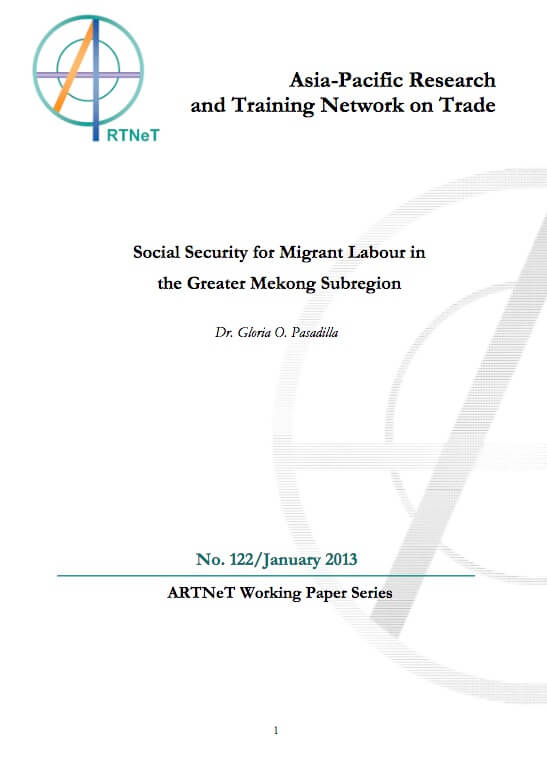Social Security for Migrant Labour in the Greater Mekong Subregion
The paper examines the labour migration trends in ASEAN and in the Greater Mekong Subregion (GMS), in particular, and analyses the ASEAN regional labour-related initiatives that seek to improve the protection of migrant workers. It discusses social protection and the access status of GMS migrant workers, as well as the legislative and legal barriers in accessing social security in host countries. Existing national social security schemes in ASEAN countries and how losses from lack of portability can be addressed, especially through social security agreements, are also discussed.

